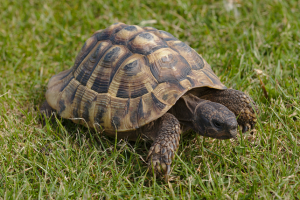Life in the slow lane
Some time ago, Dame Verity wrote in this august organ a piece about how difficult it is for her to stop and do nothing. I clearly come from the same stable, because the idea of giving myself ‘time out’ can be fraught with horror. But for me, doing nothing is all part of being able to slow down and give me and my surroundings a bit of space. Now this does not come easily to me – and fear not, you won’t see the famous line from William Henry Davies in this blog. (If of course you want to just turn to: http://mypoeticside.com/show-classic-poem-7373.)
I’m currently reading a book about the demise of the Russian aristocracy following the 1917 revolution. Actually, demise is far too fuzzy a word for the horrors that befell these people once the Bolsheviks took over. But before their idyllic lifestyle came crashing down all round them, gosh they had a good time. And I’m sure they never worried about whether THEY SHOULD BE DOING SOMETHING or indeed HOW QUICKLY THEY COULD DO IT. Life seemed to be one long round of music recitals, balls, picnics, writing letters and reading, all taken at an elegant leisurely pace. Shame that it required quite so many servants to maintain this. And as we know from Chekhov, their only real problems were wondering how they would cope once the staff returned to Moscow.
Song writers clearly know the value of life in the slow lane; music from the 20th century is full of exhortations along these lines. One of my mother’s favourite songs was Bing Crosby singing Busy Doing Nothing in the 1949 film A Connecticut Yankee in King Arthur’s Court. In 1964 The Beatles released a cover version of New Orleans musician Larry Williams’ song Slow Down, and in 1968 the first line of Simon and Garfunkel’s 59th Bridge Street song (Feeling Groovy) was ‘Slow down, you move too fast.’
So plenty of sound advice from the musical fraternity, and of course the common factor with all these people is their creativity. It is well documented that the creative process requires periods of apparent rest and inactivity to allow the brain to process an idea or invention. A friend of mine is married to a composer, and she told me how every so often when they are just sitting quietly at home, her husband’s eyes will suddenly glaze over and he races to his studio to write down the latest bit of the score that has just come to him.
It was Archimedes who shouted ‘Eureka’ when he stepped into the bath tub and suddenly understood that the rise in the water level was equal to the volume of the part of the body he had submerged. It is said that he leapt from his bath and ran naked through the streets of Syracuse in the excitement of his revelation. What is notable is that this moment of understanding did not come when he was seated at his desk but when he was having a bit of down time, i.e. taking a bath. For other examples of bathtime revelations, see the review of Bletchley Park.
Interestingly, Francis Crick admitted to being under the influence of LSD in 1953 when he first deduced the principle of the double helix that he and James Watson identified. And one thing for sure about psychedelic drugs, when under the influence they do not allow you to ‘do’ anything in the normal sense of the word and the notion of time passing is somewhat irrelevant. Crick and Watson also ran out into the street in the excitement of their discovery, but because this was England they ended up in the local pub drinking beer to celebrate. I’m unsure as to what I would find more disturbing – a dripping wet man running around shouting ‘Eureka’ or some nutter in the pub telling me he has just discovered the meaning of life.
So I intend to follow the example set by some of the greatest minds, and learn the art of doing nothing. Who knows what I might come up with?


